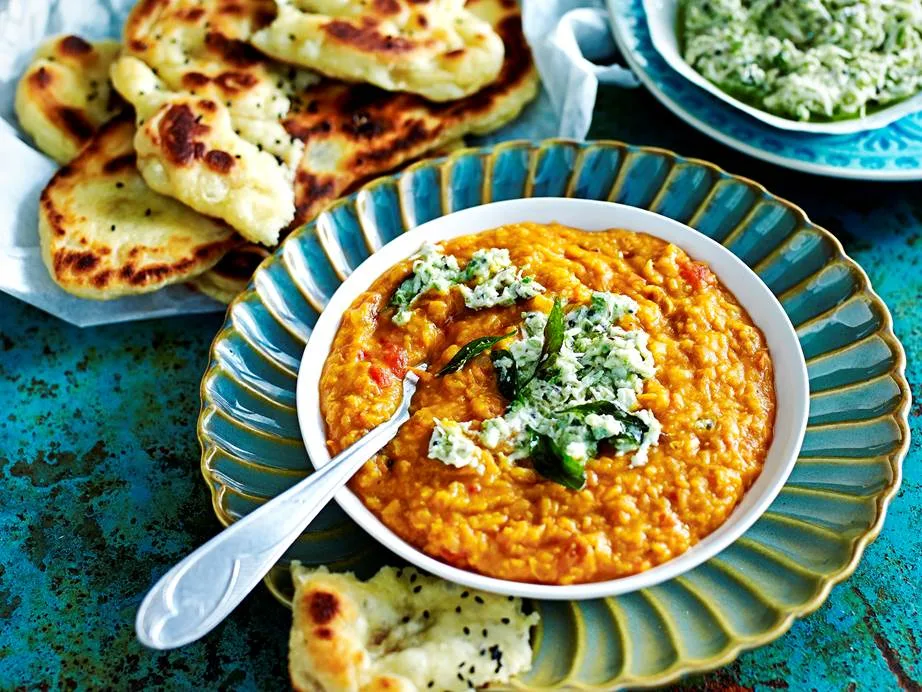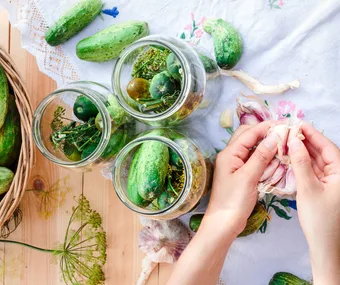We’re experiencing unprecedented times and as a result of COVID-19 many of us spending more time at home and experiencing insecurity regarding finances and jobs.
With more stress in our lives, we’re more prone to emotional eating – after all, right from early life, food is associated with being soothed.
Many factors affect mood – including stress, the environment, poor sleep, genetics, other mood disorders, and nutritional deficiencies – and though fatty and sugary foods can make you feel good (especially a takeaway after a long day), this is only temporary.
Thankfully, there are many mood-boosting foods that can nourish your body and mind in the longer term and dietitian Ravinder Lilly has shone a light on seven of them.
1. Oily fish
Fish like salmon, sardines, mackerel and tuna are packed with omega-3 fatty acids and these essential oils are essential as your body can’t make them for itself.
These essential oils are important for brain development and studies have linked the consumption of them with less depression, aggression and hostility.
Whether you opt for canned or fresh, aim for two serves per week.
2. Legumes
Rich in fibre and protein, legumes are also packed full of B vitamins that hep regulate your mood as well as minerals such as zinc, magnesium and selenium.
Peas, beans and lentils all fall under this category and they’re budget-friendly too – especially if you buy them in canned form.

Want to add more lentils into your life? Try this red dhal with coconut curry.
(Image: Women’s Weekly Food)3. Wholegrains
Wholegrains are low in GI and high in fibre which means they’ll help your body slowly release energy and keep your blood glucose levels steady. Dips in blood glucose levels trigger hunger and may send you running to the quickest sugary snack you can get your hands on.
Ditch the white bread and processed foods and try incorporating wholegrain bread, oats, barley, quinoa and brown rice into your diet.
4. Dark chocolate
Why do so many of us choose chocolate to make us feel better?
Studies have shown that the sweet stuff has been shown to support mood regulation and good quality dark chocolate is rich in health-promoting flavonoids which have been shown to increase blood flow to the brain, reduce inflammation and boost brain health.
Go for a small amount though as it’s rich in calories and choose dark over the milk and white varieties.

A little bit of dark chocolate? Yes please!
(Image: MGM)5. Probiotics and fermented foods
You’re probably aware that probiotics are good for gut health, but recent research suggests that they may also play a role in keeping up our spirits as what often affects the gut affects the brain and vice versa.
The gut’s often called the second brain as it produces many of the same neurotransmitters as the brain does, like seratonin that plays a crucial role in regulating mood. In fact, 90 per cent of the body’s seratonin is made in the gut.
Foods like yogurt, kombucha, sauerkraut and miso are bursting with probiotics so add a few of those into your diet for a healthy gut and mind.
6. Fruit and vegies
As well as being rich in fibre, vitamins and minerals, fruits and vegetables are full of antioxidants that reduce inflammation – including inflammation of the brain.
They’re also full of folate and researchers found that those with depression have lower levels of folate in their blood stream.
Green vegies like spinach, avocados and strawberries are loaded with folate but if you can’t get your hands on fresh produce, frozen works well too. Just remember to cook frozen veggies with a small amount of water to retain the nutrients.
WATCH BELOW: Five ways to eat more fruits and vegetables. Post continues after video…
7. Nuts and seeds
These healthy snacks are not only full of protein, healthy fats and fibre but they also contain tryptophan – an amino acid needed for the production of seratonin.
Steer away from the roasted and salted types as nuts are already high in fat, but Brazil nuts, almonds and pine nuts are all great for brain function. In fact, research has found that eating nuts regularly is linked with a lower incidence of depression.
And don’t forget sunshine!
We may be stuck inside but getting outside for some of the day is important as you’ll be getting a dose of vitamin D.
Vitamin D deficiency has also been linked with low mood and reduced brain performance and the majority of this vitamin doesn’t come from diet but from a substance that reacts with UV light from the sun. However, you can get some vitamin D from foods like oily fish, egg yolks, fortified milks and certain mushrooms.
Remember to engage in some mood-boosting lifestyle factors too like playing and cooking with the family as well as exercise regularly, drink plenty of water and get a decent amount of sleep.
Don’t forget to get some sunshine outside to boost your mind too!
(Image: Instagram @ladyandacat).png?resize=380%2C285)

